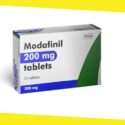9 Disadvantages of Over Intake of Caffeine

Caffeine is a natural chemical that acts as a stimulant and has beneficial effects. Caffeine is effective for curing tension and migraines. It also improves breathing rates in infants. Over intake of caffeine can result in various health issues.
What is caffeine?
Caffeine is a natural chemical that stimulates the central nervous system, muscles, and other body parts resulting in alertness of mind, improving athletic performance and memory power, to cure headaches and other health problems. It’s effective for curing asthma, ADHD, low blood pressure levels, depression, etc. However, over-intake of caffeine can result in chest pain, anxiety, restlessness, nausea, nervousness, insomnia, high blood pressure, rapid heartbeats, addiction, and other side effects.
Sources of caffeine
Naturally, it is obtain from nuts, seeds, coffee beans, guarana plants, fruits, leaves, etc. These are further collected and processed to produce caffeinated foods and beverages.
Excessive intake of such caffeinated products results in various health disadvantageous ailments. These disadvantages are:
1. Anxiety
Caffeine excites the central nervous system making one feel worried and irritated. Hence, one should monitor the intake and limit the dosage accordingly. When consumed daily, the maximum consumption should not exceed 400mg.
2. Insomnia
Too much caffeine can interfere with your sleep resulting in reduced sleep time and a disturbed sleep cycle, often leading to insomnia. People suffering from the same should avoid caffeinated products in the evening or night.
3. Dehydration
Increased urination is the common side effect of high caffeine intake due to its stimulatory effects on the urinary bladder. Caffeine tends to act as a diuretic, making you urinate more than before. Hence, it is advisable to drink a lot of water if consumed daily.
4. Digestive issues
Users can face such issues as caffeine intake causing gastric secretions in the stomach that result in acidity and intestinal burns in the inner-lining of the stomach. If the intake of coffee is not monitored it can cause diseases such as stomach ulcers and gastritis.
5. High blood pressure
High blood pressure occurs due to excitation of the central nervous system, which makes you feel energetic and result in faster heartbeats. However, this effect is temporary and causes a pounding heartbeat and chest palpitations due to an inadequate supply of oxygen to different body parts.
6. Muscle breakdown
Rhabdomyolysis is a severe condition in which damaged muscle fibers enter the bloodstream, leading to kidney failure and other health ailments. However, this is rare, and patients suffering from such a condition should limit the dosage to 250mg of caffeine per day.
7. Addiction
Excessive intake can lead to addiction, although not similar to drugs but can leave one dependent on it. These can further lead to psychological or physical dependency. Hence, one should consume caffeinated products in limit.
8. Fatigue
Caffeine is well known for boosting energy levels. The source can be in the form of tea or coffee. But, it can have opposite effects. It happens when the consumed caffeine leaves the system resulting in fatigue.
9. Rapid heart rate
A high intake of caffeine stimulates a faster heart rate. Further, it can also lead to an altered heartbeat rhythm known as atria fibrillation. These effects are prominent in youngsters who consume a high dosage of caffeinated drinks.
Conclusion
Excessive consumption of caffeine can cause addiction and makes you dependent on it. Hence, it is advisable to consume caffeine in limit to avoid such problems in the future.
References:
Alina Petre. What Is Caffeine, and Is It Good or Bad for Health? Retrieved from https://www.healthline.com/nutrition/what-is-caffeine
Caffeine – Uses, Side Effects, and More. Retrieved from https://www.webmd.com/vitamins/ai/ingredientmono-979/caffeine
Recommended For You
Bouncing Back: Essential Steps In Overcoming A Spine Injury
Sangati Jogwar
Sangati is a writer, poet, voracious book reader, singer, movie-buff and critic. Loves to discuss, interact and have a strong belief in spirituality.




